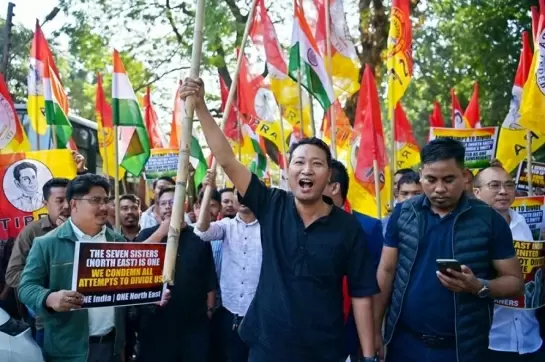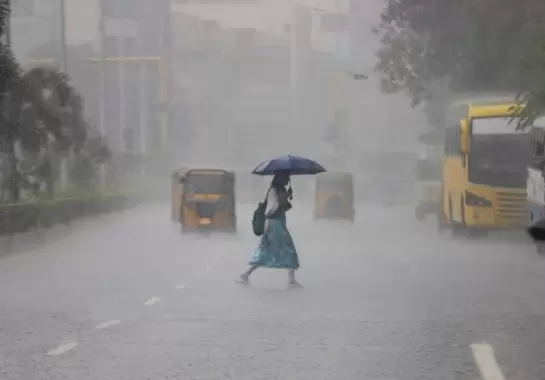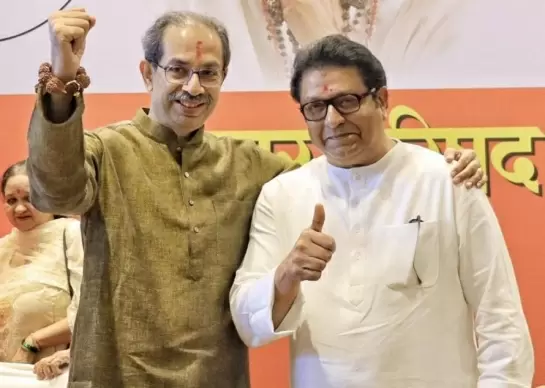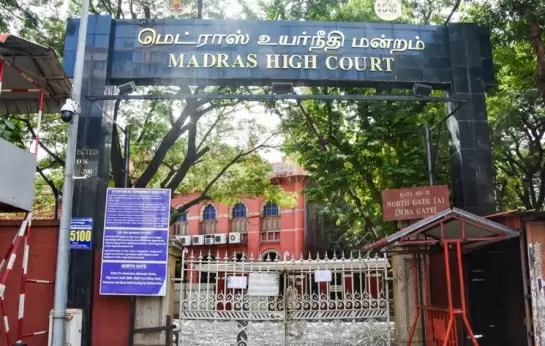Manipur will be brought under ILP regime: HM
09-December-2019
Union Home Minister Amit Shah on Monday declared that Manipur would be brought under the Inner Line Permit (ILP) regime and with that the problems of all the northeastern states would be taken care of as mentioned in the Citizenship Bill.
He reassured that no provision of Article 371 would be violated by this Bill.
The linguistic, cultural and social identity of the people of the North-East would be preserved and this Bill contains the solution to the problems of the people of these states, as the provisions of the amendment have been incorporated after marathon deliberations with various stakeholders from northeast for last one month.
"The issue should be seen as a humanitarian one, beyond political ideologies," Shah said.
He made the announcement while moving the Citizenship (Amendment) Bill 2019 in Lok Sabha for its passage.
The Minister said the provisions of the amendments to the Citizenship Act, 1955, which was enacted to provide for the acquisition and determination of Indian citizenship, would not apply to tribal areas of Assam, Meghalaya, Mizoram or Tripura as included in the Sixth Schedule to the Constitution and the area covered under "The Inner Line" notified under the Bengal Eastern Frontier Regulation, 1873.
The Bill, he said, also seeks to amend the Third Schedule to the Act to make applicants belonging to the six minority communities from the three countries eligible for citizenship by naturalisation if they can establish their residency in India for five years instead of the existing eleven years.
The Bill seeks to grant Indian citizenship to persons belonging to Hindu, Sikh, Buddhist, Jain, Parsi and Christian communities who have migrated to India after facing persecution on grounds of religion in Pakistan, Afghanistan and Bangladesh, if they fulfil conditions for grant of citizenship.
In his introductory remark, Shah said the Bill no where targets India's minority community, but illegal immigrants would not be allowed to stay in the country at any cost.
Shah, while replying to the debate on the Bill, said that there is no political agenda behind this Bill but it is only a Constitutional process to give citizenship to those were denied basic civil rights for the last 70 years.
He cited the provisions from Constitutions of Afghanistan, Pakistan and Bangladesh where they provide for a specific state religion.
In this scenario, Shah stated that these countries have had a history of persecution of religious minorities like Hindus, Sikhs, Buddhists, Jains, Parsis and Christians.
Some of them also have fears about such persecution in their day-to-day life where right to practice, profess and propagate their religion has been obstructed and restricted.
Many such persons have fled to India to seek shelter and continued to stay in India even if their travel documents have expired or they have incomplete or no documents.
Reassuring such persons against any harassment, Shah said that a person who makes an application for citizenship would not be disqualified for making the application on the ground that a proceeding is pending against him or her and the application would not be rejected on that ground, if he is otherwise found qualified for grant of citizenship.
Further, the person who makes an application for citizenship would not be deprived of his or her rights and privileges to which he or she was entitled on the date of receipt of his application.
The Home Minister said that this Bill contains provisions to grant Citizenship to such refugees on reasonable grounds, which in no way go against any provision under the Constitution of India and does not violate Article 14.
Talking about Right to Equality, Shah said that Article 14 allows reasonable qualifications to its provisions and there have been instances in the past when refugees facing persecution in other countries have been granted Indian citizenship.
Giving example of refugees coming from Bangladesh in 1971, he said that the Government of that time gave citizenship to these refugees.
The Home Minister said that the inflow of refugees have not stopped after that. Refugees from Uganda were also given citizenship and same steps were taken during Sri Lankan crisis and after the signing of the Assam Accord in 1985.
These decisions were based on reasonable qualifications to Article 14, he added.
Talking about another amendment to the Act, Shah said the Bill seeks to amend section 7D so as to empower the Central Government to cancel registration as Overseas Citizen of India Cardholder, after providing a reasonable opportunity of being heard, in case of violation of any provisions of the Citizenship Act or any other law for the time being in force.
The Home Minister said that there is no merit in the questions raised by members on the competence of Parliament to discuss this Bill on the ground that it is against the basic structure and ethos of the Constitution.
"I want to assure the nation that this Bill is not against any provision of the Constitution of India", he said.IANS
Venezuelan President, Wife Captured After Strikes On Caracas, Claims Trump
Bengaluru to Get Third-Largest Park After Lalbagh, Cubbon; Basavanna Biodiversity Park Approved
Nation Remembers Tamil Queen Veeramangai Rani Velu Nachiyar Who Fought The British
Treat Gig Workers As Human Beings, Not Disposable Data Points: Raghav Chadha
Missing BJP Leader Found Dead in Pond After Five Days in East Midnapore









